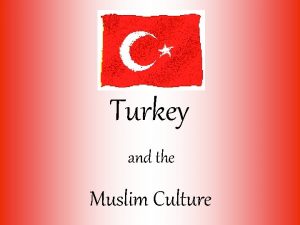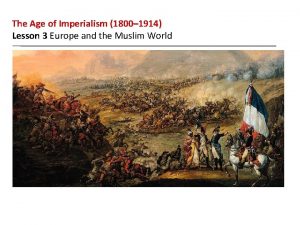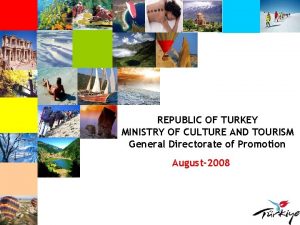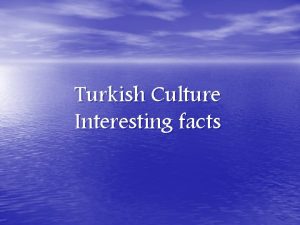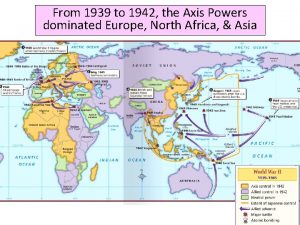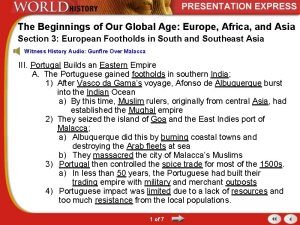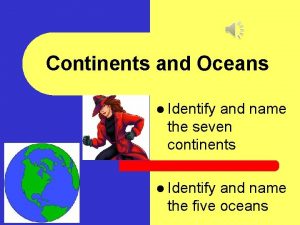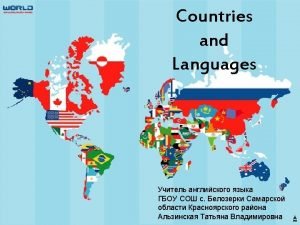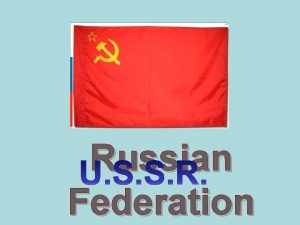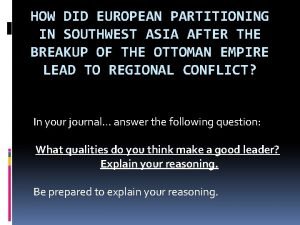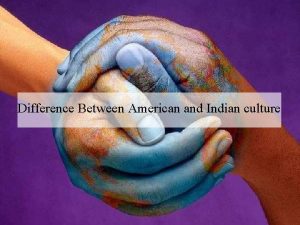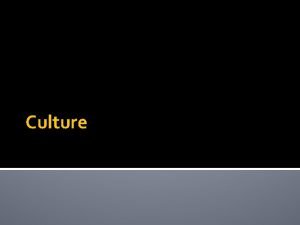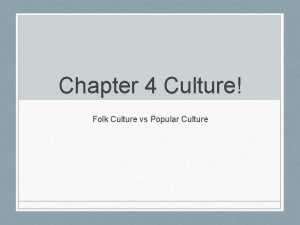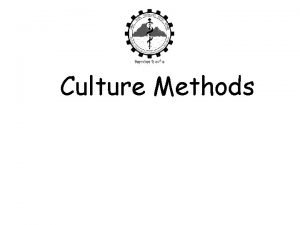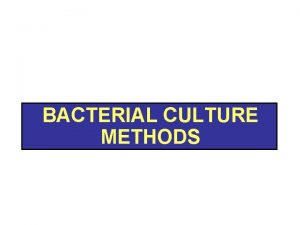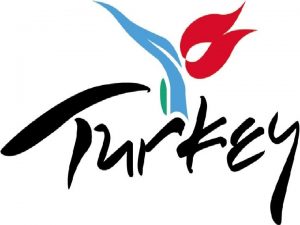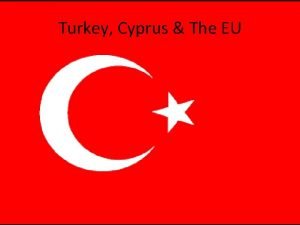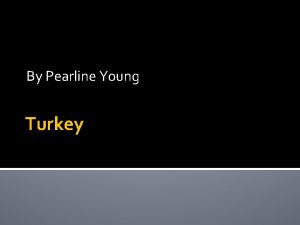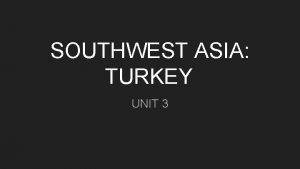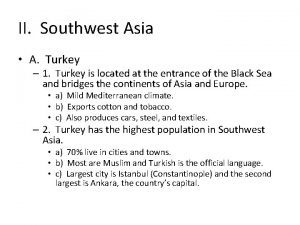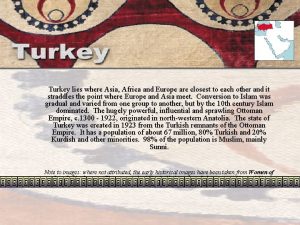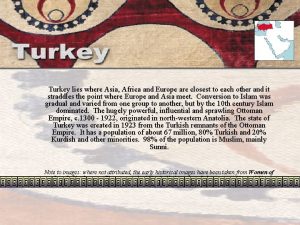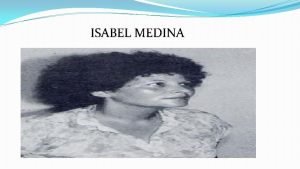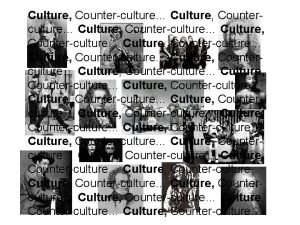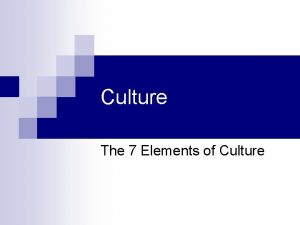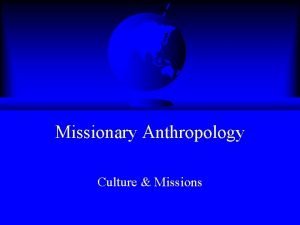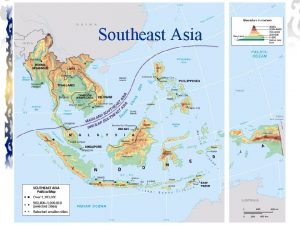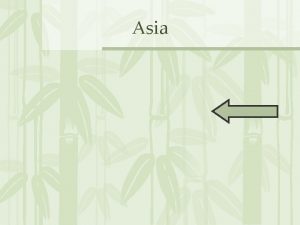Turkey and the Muslim Culture Europe Asia Medina
























- Slides: 24

Turkey and the Muslim Culture

Europe / Asia

• Medina Largest population of the world’s Muslims live in the areas in green.

Mevlevi (Whirling) Dervishes The Dervishes are part of the Sufi Muslims of Turkey. They participate in a ritual whirling to mystically commune with Allah.

Timeline- A Brief History of Turkey Republic of Turkey is located within an area called Anatolia. Hittites 2000 - 1200 B. C. Persians 546 – 334 B. C. 1200 – 550 B. C. Various tribes 30 B. C. – 395 A. D. Romans gain control 334 B. C. Macedonians led by Alexander the Great 1100 A. D. Seljuks, Turkish warriors 476 – 1100 A. D. Anatolia flourished as a Byzantine Empire under Constantine The Prophet, Muhammed born - 570 A. D. 1453 A. D. Byzantine Empire ends, Ottomans rule 1243 A. D. Seljuks invaded by Mongols 1923 Modern Turkey under Kemel Ataturk 1919 A. D. Allies divided up Ottoman Empire

Modern Turkey • The Republic of Turkey was founded in 1923 by Kemel Ataturk. • He founded laws and institutions which created a parliamentary secular state in Turkey. • He established the Turkish language. • He outlawed the veil for women.

Interesting facts about Turkey • Turkey is located in both Europe and Asia. • Turkey is currently seeking acceptance in the European union. • Religion: Although the government has established freedom of religion in Turkey 98% of Turks are Muslim (2/3 Sunni, 1/3 Shia) • Turkish is the official language

Muslim Culture of Turkey and the Middle East

The Prophet Muhammad • Orphaned at age 6 and brought up by his grandfather, then later his uncle. • Married a wealthy widow and became a merchant. • After marriage, he was able to spend more time in meditation. • At age 40, 610 AD, he was visited in Mecca by the angel Gabriel and given the task of converting his countrymen from their pagan, polytheistic beliefs. • He met considerable opposition to his teachings. • In 622 CE he moved north to Medina due to increasing persecution. • His teachings became known as Islam. It became firmly established throughout the area.

Other Facts About Islam • Islam is the name of the religion. It is derived from the Arabic word "salam, " which is often interpreted as meaning "peace. ” However, "submission" would be a better translation. • Followers of Islam are called Muslims. • An alternate spelling for "Muslim" that is sometimes used is "Moslem. ” Many people use these terms interchangeably, but it is not recommended because Moslem is often pronounced "mawzlem": which sounds like an Arabic word for "oppressor, “ or “unjust. ” Muslims may interpret this as offensive. • A Muslim’s “Holy Book” is the Quran. The writing of the Quran were given to Muhammad by Allah.

• The original language of the Quran is Arabic. It is read from back to front and from right to left. • Muslims try to memorize the whole Quran. Those who do are held in high regard. It is longer than the Christian Bible. • Muslims worship Allah. "Allah" is an Arabic word which means "the One True God. " • Most religious historians view Islam as having been founded in 622 CE by Muhammad the Prophet (peace be upon him). However, many if not most of the followers of Islam believe that Islam existed before Muhammad was born. The origins of Islam date back to the creation of the world. Muhammad was the last of a series of prophets including Moses, Abraham, and Jesus.

The Five Pillars of Islam 1. Bearing Witness (Shahadah) -to declare Allah, the one true God, and Muhammad as his prophet 2. Prayer (Salat) -5 times daily: dawn, noon, late afternoon, sunset, nightfall 3. Almsgiving (Zakat) -regular charity purifies man’s remaining wealth 4. Fasting/ Ramadan (Sawm) -fasting from dawn to sunset during month of Ramadan 5. Pilgrimage (Hajj) -at least one pilgrimage to Mecca during a Muslim’s lifetime If physically and financially possible

Call to prayer An Imam calls Muslims to prayer 5 times a day from a minaret (small tower) connected to a mosque.

The Kaaba in Mecca Muslims face the Kaaba (the most holy place of worship for Muslims) in Mecca when praying. In the United States they face East.

Stages of Prayer (rak’a) Bowing down Prostration Sitting begins (ruku’) (sujud) (julus) -Muslims prayer 5 times a day. -Before prayer, they must perform WUDU, a systematic washing. -Next they complete prayer using precise order of words & motions.

The Five Pillars of Islam 1. Bearing Witness (Shahadah) -to declare Allah, the one true God, and Muhammad as his prophet 2. Prayer (Salat) -5 times daily: dawn, noon, late afternoon, sunset, nightfall 3. Almsgiving (Zakat) -regular charity purifies man’s remaining wealth 4. Fasting/ Ramadan (Sawm) -fasting from dawn to sunset during month of Ramadan 5. Pilgrimage (Hajj) -at least one pilgrimage to Mecca during a Muslim’s lifetime If physically and financially possible

Hajj • The Hajj, or pilgrimage to Mecca, is a central duty of Islam whose origins date back to the time of Prophet Ibrahim (Abraham). In carrying out this obligation, they fulfill one of the five "pillars" of Islam.

The Five Pillars of Islam 1. Bearing Witness (Shahadah) -to declare Allah, the one true God, and Muhammad as his prophet 2. Prayer (Salat) -5 times daily: dawn, noon, late afternoon, sunset, nightfall 3. Almsgiving (Zakat) -regular charity purifies man’s remaining wealth 4. Fasting/ Ramadan (Sawm) -fasting from dawn to sunset during month of Ramadan 5. Pilgrimage (Hajj) -at least one pilgrimage to Mecca during a Muslim’s lifetime If physically and financially possible

Ramadan • Before sunrise the family eats to give them strength to endure the fast during the day. • Ramadan is a holy time of year for Muslims. • During Ramadan, Muslims fast from dawn until sunset for an entire month. The date of Ramadan changes yearly. (Lunar calendar explanation on next slide) • The fasting prohibits them from eating or drinking anything. Nothing is allowed in the mouth to pacify their hunger, not even water, gum, or cigarettes. Sex is also prohibited. • During Ramadan, Muslims try to read the entire Koran.

Islamic Lunar Calendar • The Islamic year is based on a lunar year as opposed to a solar year. The Islamic year and months begin at the first sighting of the New Moon. There are 12 lunar months. Their year is 11 or 12 days short of the Gregorian calendar which will cause their holidays to move throughout each season about every 33 years. 1 Muharram (30 days) 2 Safar (29 days) 3 Rabi-ul awwal (30 days) 4 Rabi-ul thani (29 days) 5 Jumada-ul awwal (30 days) 6 Jumada-ul thani (29 days) 7 Rajab (30 days) 8 Shaaban (29 days) 9 Ramadan (30 days) 10 Shawwal (29 days) 11 Dhul Qa'da (30 days) 12 Dhul Hijja (29/30 days)

Ramadan cont. • At night Muslims break their fast with a date and water following the example of Muhammad. Then after prayers, they share a large meal with family members. • Ramadan it a time of purifying themselves, forgiving old wrongs, showing extra kindness to others, and giving alms to the poor. • Above all, Muslims spend much time in prayer during this month. • Muslims celebrate Eid al-Fitr for several days after Ramadan.

Celebrating Eid • -Takes place on the 1 st day of Shawwal, the day after the month of Ramadan • -Banners and pennants are hung in Muslim countries • -On Eid people bath, put on perfume, and dress in new clothes. Religious services are attended, old wrongs forgiven, and money is given to the poor. Special foods are prepared and relatives and friends are invited to share in the feast. • -Gifts and greeting cards are exchanged.

Eid called Seker Bayrami (Candy Festival) in Turkey • After men return from the mosque, their wives honor them by kissing their hands, then husbands kiss wives on each cheek • Children kiss the hands of each adult and press their forehead to their hands to honor them. • Children are given a fancy handkerchief with money inside and a plate of sweets (possibly including Lokoum, or what we call Turkish Delight. ) • Families gather for a special feast. • Children are taken to amusement parks, puppet shows, carnivals. • In the evening baklava is served after a huge meal shared by family and friends.

Shadow Puppets KARAGOZ and HACIVAD In Turkey, children may attend puppet shows for Eid. Shadow puppets became popular in Turkey during the Ottoman Empire. Two major characters in puppet shows were Karagoz and Hacivad. Karagoz was a jester who was said to have lived during the 14 th century. He is a rough uneducated man of the people who uses his wit to get the better of his pompous educated friend, Hacivad.
 Is turkey part of europe or asia
Is turkey part of europe or asia Lesson 3 europe in the muslim world
Lesson 3 europe in the muslim world Republic of turkey ministry of culture and tourism
Republic of turkey ministry of culture and tourism Interesting facts about turkish language
Interesting facts about turkish language Goodguysww.
Goodguysww. European footholds in the eastern hemisphere
European footholds in the eastern hemisphere What are the 5 major peninsulas in europe
What are the 5 major peninsulas in europe The five oceans and seven continents
The five oceans and seven continents Asia europe north america
Asia europe north america Which continent is russia in
Which continent is russia in Europe partitioning in southwest asia answer key
Europe partitioning in southwest asia answer key Ethnocentrism examples
Ethnocentrism examples Continuous culture and batch culture
Continuous culture and batch culture Indian vs american culture
Indian vs american culture Stab and stroke culture
Stab and stroke culture Folk culture and popular culture venn diagram
Folk culture and popular culture venn diagram Leisure
Leisure Explain stab culture and stroke culture
Explain stab culture and stroke culture Homework due today
Homework due today Anaerobic culture method
Anaerobic culture method Robertson cooked meat medium
Robertson cooked meat medium Surface culture deep culture and esol
Surface culture deep culture and esol Poemas de gil vicente
Poemas de gil vicente Dr salomon aguilar medina
Dr salomon aguilar medina Quadratic equation song
Quadratic equation song
